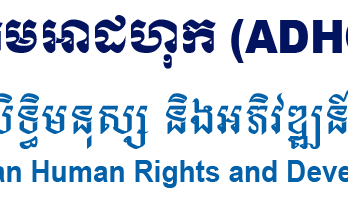But Japan has not supported Western-sponsored sanctions of ASEAN nations that violate human rights to any significant extent. This is likely due to the Japanese war legacy in Asia and the perceived risk of alienation from its neighbours. When Japan has occasionally voiced concern over human rights violations in the region, East Asian nations have accused Japan of hypocrisy, referring to atrocities committed by Japan during World War II.
How then should Abe’s approach to democracy and human rights promotion in ASEAN be interpreted?
Abe delivered the ‘Five Principles of Japan’s ASEAN Diplomacy’ in Indonesia, the largest democracy in Southeast Asia. Indonesia is an increasingly important partner for Japan economically and strategically as a hedge against Chinese influence in the region. In this context, Japan could emphasise the notion of ‘sharing’ values such as democracy and human rights — values that Indonesia has been promoting within the ASEAN framework. An ASEAN with values closer to Japan’s would, arguably, be more inclined to cooperate with Japan over China in the future.
Abe’s growing focus on values such as democracy and human rights, at least rhetorically, could be an attempt to balance his unpopular move to overhaul Japan’s military policy. Abe has recently loosened Japan’s self-imposed ban on exports of military weapons and reinterpreted the Article 9 peace clause. The strategic use of ODA to strengthen democracy and human rights could be a way for Abe to legitimise such moves, at home and abroad.
Will Abe turn Japan into a champion on human rights and democracy in ASEAN?
The Japanese government is unlikely to be anything but pragmatic in its approach to promoting democratisation and adherence to human rights in ASEAN. Japan has had four recessions since 2000 and ASEAN can provide Japan with potential economic benefits in the new ASEAN Economic Community, as well as a way to strategically hedge against Chinese influence in the region. There appears to be too much at stake for the Abe administration to risk its relations with ASEAN by getting tough on human rights. Japan’s statements at the 17th ASEAN–Japan Summit in Naypyidaw on 14 November 2014 indicated pragmatism is likely to overshadow human rights advocacy, despite Abe’s ‘new’ direction in Japanese diplomacy. The only recorded reference to human rights during the summit was made in relation to Japanese citizens abducted by North Korea. Addressing the democracy deficit and gross human rights violations in some ASEAN member-countries does not seem to be a priority on Japan’s diplomatic agenda. Promoting the construction of high speed trains, building industrial infrastructure and securing safe sea-lanes, on the other hand, are.
André Asplund is a Postdoctoral Research Fellow with the European Institute of Japanese Studies at the Stockholm School of Economics. His research focuses on Japanese ODA in relation to democratisation and human rights implementation in Southeast Asia.



